Introduction
In the realm of cloud computing, AWS and Azure stand as frontrunners, offering a wide range of services tailored for businesses of all sizes. These platforms have made a significant impact on companies like Axfood and Dunelm Group plc, revolutionizing their operations and driving innovation. The reliability and scalability of AWS and Azure have also been crucial for managing ERP systems and ensuring business continuity, as seen with Schneider Electric.
The evolution of cloud security has further solidified these platforms as trusted guardians of customer data. With their cost-effective pricing models and operational agility, AWS and Azure empower businesses to adapt swiftly to market shifts. In this article, we will explore the compute services, storage services, database services, security and encryption services, monitoring and DevOps services, pricing models, hybrid cloud capabilities, market share, career opportunities, and key considerations when choosing between AWS and Azure.
Join us as we delve into the world of cloud computing and its transformative potential for businesses of all kinds.
Overview of AWS and Azure
As the realm of cloud computing expands, AWS and Azure stand at the forefront, offering a plethora of services tailored for businesses of all sizes. AWS, with its robust suite of offerings, has been instrumental for companies like Axfood, Sweden's substantial food retailer. Axfood has harnessed the power of Amazon SageMaker to drive innovation and digital transformation, optimizing their data science capabilities.
This has been crucial as they navigate the intricate landscape of machine learning operations (MLOps), pushing the envelope in production models and setting new standards for best practices in the industry.
Azure, on the other hand, has played a pivotal role for Dunelm Group plc, the UK's premier homewares retailer. Azure's ability to support distributed systems has been a game-changer for Dunelm, whose digital platform sees over 400 million sessions annually and generates a significant revenue share. For such a high-traffic platform, Azure's scalability and reliability in handling the frontend layer are invaluable.
Moreover, these platforms are not just about providing digital space; they're about ensuring resilience and continuity. The high availability, fault tolerance, and disaster recovery capabilities of AWS and Azure mean that businesses can withstand data center outages and maintain operations without skipping a beat—a crucial factor for companies like Schneider Electric in managing their ERP systems and customer accounts.
The evolution of cloud security further underscores the sophistication of these platforms. Initially an afterthought, cloud security has matured into a complex, multi-layered defense mechanism to safeguard against a growing array of cyber threats. This progressive approach to security is a testament to the dedication of AWS and Azure in protecting their clientele.
Cloud computing's transformative potential is encapsulated in its economic model and operational agility. The 'pay-as-you-go' pricing structure allows businesses to scale resources as needed, avoiding upfront investments in expensive hardware. This cost-effective strategy, combined with the unparalleled flexibility of the cloud, empowers businesses to pivot swiftly in response to market shifts, embodying the essence of modern-day enterprise agility.
In conclusion, AWS and Azure offer more than just cloud services—they provide a foundation for innovation, efficiency, and security. Their impact is evident in the success stories of diverse companies, highlighting the indispensable role of cloud computing in today's business ecosystem.
Compute Services Comparison
AWS and Azure are juggernauts in the cloud computing arena, each offering a suite of compute services designed to cater to various application needs and workload management. On the AWS side, you have a range of options like Amazon EC2 instances that allow businesses to run applications on the public cloud with a high degree of control and flexibility. Azure's answer to this is their Virtual Machines and Virtual Machine Scale Sets, which offer similar capabilities for Windows and Linux-based applications, highlighting the platform's focus on hybrid cloud solutions.
For containerized applications, AWS provides services such as Amazon ECS and Amazon EKS, enabling developers to manage Docker containers at scale. Azure competes with its Azure Kubernetes Service (AKS), streamlining container orchestration and supporting modern microservices architectures. Both platforms ensure that the orchestration of containers is seamless, allowing businesses to focus more on development and less on the nuances of infrastructure management.
Serverless computing is where AWS Lambda and Azure Functions step into the spotlight. These services are designed to run code in response to events without the need to manage servers. They are a perfect fit for automating cloud workflows and building applications that can scale automatically while companies only pay for the compute time they consume.
As cloud security has evolved from its rudimentary beginnings into a sophisticated, multi-layered necessity, both AWS and Azure have fortified their offerings with advanced security measures. The importance of cloud security can't be overstated, especially as AI and machine learning play a larger role in data analysis and business applications. The compute power offered by these platforms, backed by substantial global infrastructure, is crucial for processing the massive datasets required in fields like drug discovery, as evidenced by collaborative efforts in the pharmaceutical industry.
To understand the market dominance of these cloud providers, consider that together, Amazon, Microsoft, and Google hold an estimated 70% share of the global cloud infrastructure market. This concentration underscores the significance of their compute services in fueling AI research and other compute-intensive tasks. With hyperscale data centers strategically located around the world, they ensure that the necessary compute resources are available on-demand, illustrating the ever-growing reliance on cloud infrastructures for contemporary business and research applications.
Storage Services Comparison
Storage services are the backbone of cloud computing, enabling a myriad of use cases across industries. AWS and Azure, leading cloud service providers, offer a spectrum of storage solutions tailored to specific needs. Object storage, block storage, and file storage are foundation stones of these services, each serving distinct functions and performance requirements.
AWS's storage services are designed for high-capacity, scalable, and secure storage solutions. Their offerings include Amazon Simple Storage Service (S3) for object storage, designed for storing vast amounts of unstructured data. This service allows for any amount of data to be stored without the need for pre-processing, akin to how a data lake accepts data in various formats.
Meanwhile, block storage via Amazon Elastic Block Store (EBS) provides low-latency, high-performance access, ideal for transactional databases and enterprise applications.
Azure's storage portfolio also addresses the growing demands for agility and security. Azure Blob Storage, similar to AWS's object storage, offers cost-effective storage for large amounts of unstructured data, or 'blobs', without requiring a specific data format or associated metadata. Azure also provides a robust identity and access management service through Azure Active Directory, which includes features like multi-factor authentication to enhance security.
The significance of these services is underscored by recent industry insights. For instance, AWS is reportedly strengthening its services to cater to the burgeoning field of generative AI, anticipating a significant rise in adoption. Furthermore, the rapid evolution of security measures in cloud services from basic protections to advanced, multi-layered strategies highlights the critical importance of reliable and secure storage.
When evaluating cloud storage options, businesses must consider data characteristics, performance requirements, and cost efficiency. The choice between AWS and Azure can hinge on factors such as the nature and volume of data, the need for high-speed access, and the overall investment in IT infrastructure. As organizations in all sectors increasingly depend on cloud infrastructure, with spending on external services outpacing traditional in-house IT, the decision on where to store critical data becomes all the more pivotal.
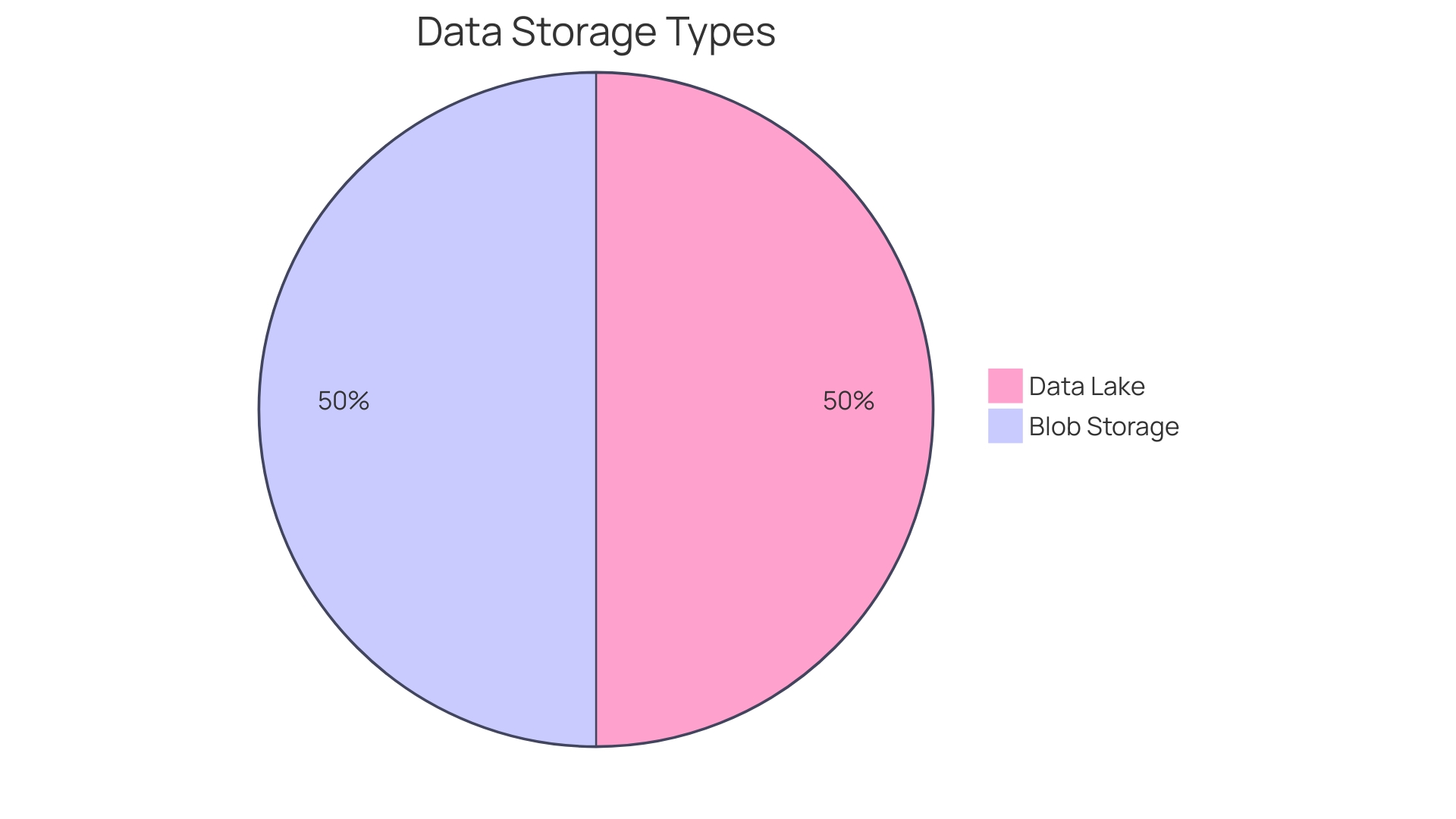
Database Services Comparison
Cloud-based database services are pivotal for managing structured data, with AWS and Azure leading the fray by offering a plethora of options tailored to various business requirements. AWS's database offerings span traditional relational databases, providing structured data storage with ACID transactions, to NoSQL and graph databases for handling unstructured data and complex relationships. Azure, on the other hand, not only includes similar database services but also integrates with Oracle, bringing forth Oracle Database@Azure, which promises best-in-class capabilities and addresses a rich history of cloud security concerns.
The evolution of database management systems has been marked by an increased emphasis on real-time data synchronization, ensuring consistency across multiple data sources, thereby enhancing collaboration and aiding in prompt decision-making. Graph databases, in particular, excel in representing and querying complex data structures, making them indispensable for applications in social networking, fraud detection, and recommendation systems.
Furthermore, the integration of AI into cloud services, as highlighted in Microsoft’s earnings call, underscores the significance of data as the driving force behind cloud adoption and usage. Database services are not just about storage; they are the linchpins of modern applications, shaping user experiences and enabling the seamless functioning of business applications.
As the complexity of data grows, so does the need for sophisticated database management systems, capable of not just storing vast amounts of data, but also making sense of it all. Both AWS and Azure continue to innovate and adapt to these needs, offering a suite of services that support everything from autonomous databases to bridging the gap between SQL and NoSQL systems, ensuring that businesses have the tools they need to manage their data effectively and securely.
Security and Encryption Services Comparison
Ensuring the security of cloud-based resources is a cornerstone of modern business operations. As companies migrate more of their data and services to the cloud, the security measures provided by cloud service providers become a pivotal factor in that transition. AWS and Azure, two of the leading cloud services platforms, each offer an extensive suite of security features tailored to safeguard customer data and maintain regulatory compliance.
AWS's security architecture is designed to provide robust protection across multiple layers. This includes managed services for identity and access management, such as AWS Identity and Access Management (IAM), which allows precise control over who can access what resources. Network security is fortified through services like AWS Shield, which defends against DDoS attacks, and AWS WAF, a web application firewall that helps protect web applications from common web exploits.
Moreover, the importance of data encryption is underscored by AWS's comprehensive encryption capabilities, including AWS Key Management Service (KMS) and AWS Certificate Manager for managing encryption keys and digital certificates respectively.
Similarly, Azure's commitment to security is exemplified by its own set of sophisticated tools. Azure Active Directory provides identity services that enable the right individuals to access the right resources. Network security is reinforced through Azure Firewall and Azure DDoS Protection, delivering high-level protection to customer's virtual networks.
Azure also focuses on data protection with services like Azure Key Vault for encryption key management and Azure Information Protection for classifying and protecting documents and emails.
Both platforms have evolved their security services to respond to the heightened threat landscape. As cloud adoption has grown, so have the sophistication and frequency of cyber-attacks, leading to an ever-escalating arms race between attackers and defenders. Cloud service providers now adopt a multi-layered approach to security, moving beyond basic defenses to more complex strategies.
The evolution of cloud security is a testament to the industry's commitment to safeguarding digital assets. This is reflected in the words of cybersecurity experts who noted that the current cybersecurity measures are the culmination of years of research and iteration in response to emerging threats. Organizations opting for hybrid and multi-cloud strategies are indicative of this trend, with a significant portion leveraging the security benefits of both cloud and on-premises infrastructure.
Ultimately, the choice between AWS and Azure will depend on the specific needs and compliance requirements of the business, but the assurance is that both platforms are equipped with a sophisticated array of tools to protect against a wide range of cyber threats.
Monitoring and DevOps Services Comparison
AWS and Azure, two of the leading cloud service providers, offer comprehensive suites of monitoring and DevOps tools that are crucial for maintaining and optimizing cloud infrastructure and applications. These tools serve as the backbone of cloud operations, ensuring high availability, performance, and continuous integration and delivery of applications.
AWS provides services like Amazon CloudWatch, which allows users to collect and track metrics, collect and monitor log files, and set alarms. AWS also offers developer tools such as AWS CodeCommit, AWS CodePipeline, and AWS CodeBuild that facilitate continuous integration and continuous delivery (CI/CD) practices.
In contrast, Azure's monitoring services include Azure Monitor and Application Insights, which provide full-stack monitoring, advanced analytics, and actionable insights for applications and services. Azure DevOps includes a range of tools like Azure Boards for project management and Azure Pipelines for implementing CI/CD, enabling teams to plan smarter, collaborate better, and ship faster with a set of modern dev services.
The DevOps methodology, which integrates software development and IT operations, is pivotal in today's software development landscape, aiming to shorten development cycles, increase deployment frequency, and create more dependable releases in close alignment with business objectives. Azure DevOps exemplifies this approach with its suite of services that address the complete lifecycle of software development.
The adoption of microservices architectures further accentuates the need for robust monitoring and DevOps tools. Microservices, characterized by small, autonomous services, offer flexibility and scalability but also introduce complexities in monitoring and testing. Effective DevOps practices and tools can mitigate these challenges by facilitating better collaboration between development and operations teams, ensuring that software is thoroughly tested and reliable before deployment.
Recent advancements in automation and AI, such as those implemented by Amazon in their fulfillment centers, underscore the evolving landscape of technology and the importance of adaptive and efficient operational tools. DevOps tools not only streamline processes but also integrate security measures from the outset, maintaining the integrity and security of cloud services.
Furthermore, the importance of DevOps in ensuring organizational productivity and stability cannot be overstated. A DevOps culture promotes a collaborative environment where the introduction of new features and fixes enhances rather than disrupts the work structure.
In summary, both AWS and Azure offer robust solutions to address the needs of modern cloud applications, each with its unique set of tools and services. The choice between them may depend on specific organizational needs, existing infrastructure, and strategic goals.
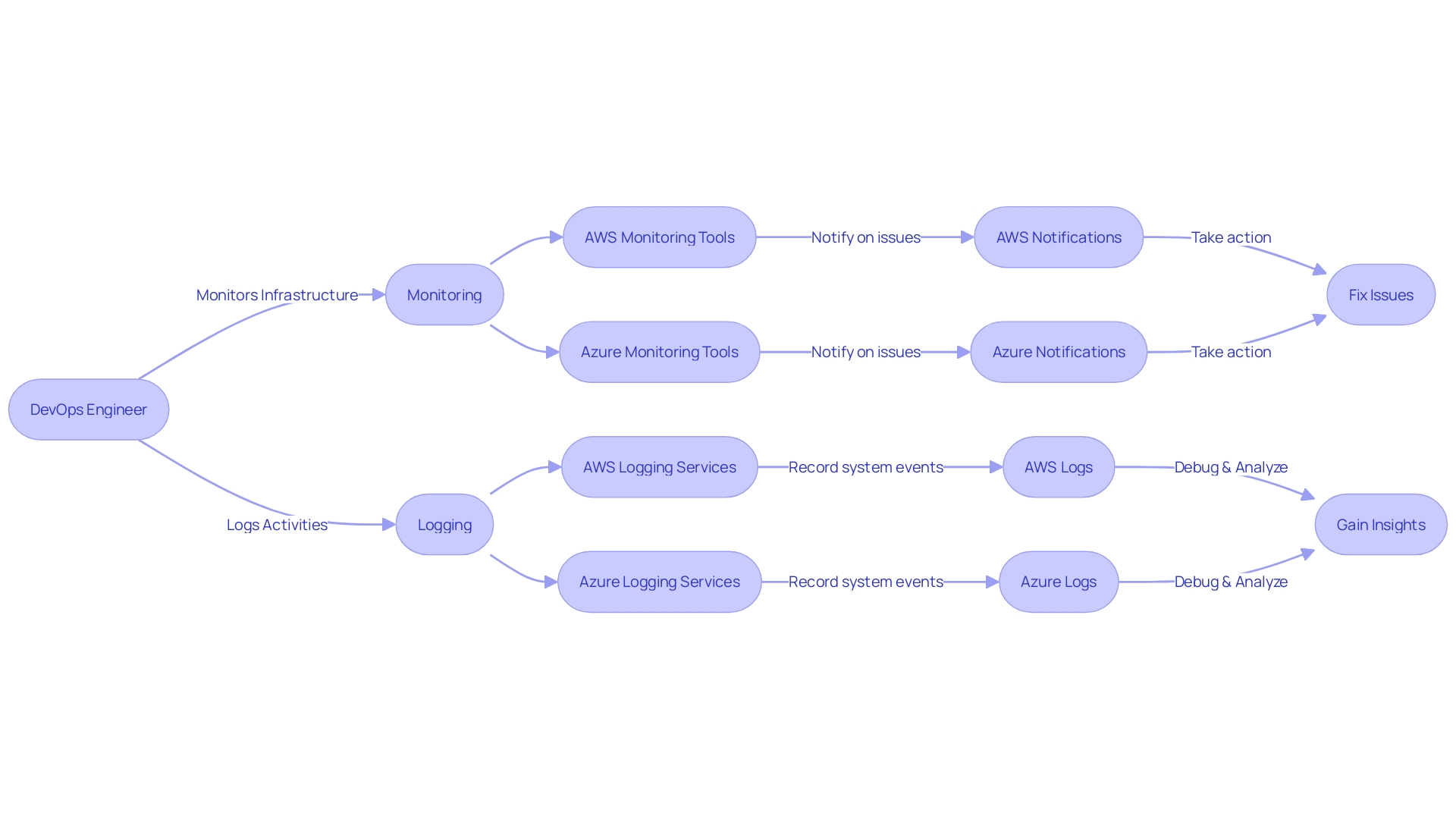
Pricing Models and Cost Considerations
Understanding the pricing structures of AWS and Azure is vital for organizations looking to optimize their cloud expenses. AWS offers a pay-as-you-go model that provides flexibility, allowing businesses to scale services on demand and pay only for what they use. This is particularly beneficial for modern, scalable, and elastic workloads.
Azure's pricing, while also offering a pay-as-you-go option, includes additional benefits for enterprises deeply embedded in the Microsoft ecosystem, often translating into cost savings for those utilizing other Microsoft services.
Cost optimization is a critical discussion point for businesses. Hidden fees in cloud services, akin to 'junk fees' in other industries, can inflate budgets unexpectedly. It's imperative for companies to scrutinize their cloud bills for such charges and push back when necessary.
Recent insights from industry analysts emphasize the importance of understanding the total cost of ownership and return on investment when adopting cloud technologies, including the potential of advanced technologies like generative AI to enhance cloud value.
When considering Azure and AWS, it's also important to look at specific service comparisons. For instance, comparing Azure Active Directory (AD) with AWS Identity and Access Management (IAM) reveals differences in features and cost-effectiveness, crucial for maintaining robust security protocols in the cloud.
In terms of cost reduction, data center operators are exploring AI and other advanced technologies to lower energy consumption, a move that's also reflective in the cloud sphere. AWS has been highlighted for its affordability and flexibility, which can be particularly advantageous for small and medium-sized businesses (SMBs) looking to leverage AI and other innovative tools to gain a competitive edge.
For organizations deliberating between in-house solutions and cloud services, the decision hinges on various factors including development capability, time, effort, and the specifics of their business goals. Ultimately, the choice between AWS and Azure should be informed by a comprehensive analysis of pricing models, cost structures, and the strategic alignment of technological capabilities with business objectives.
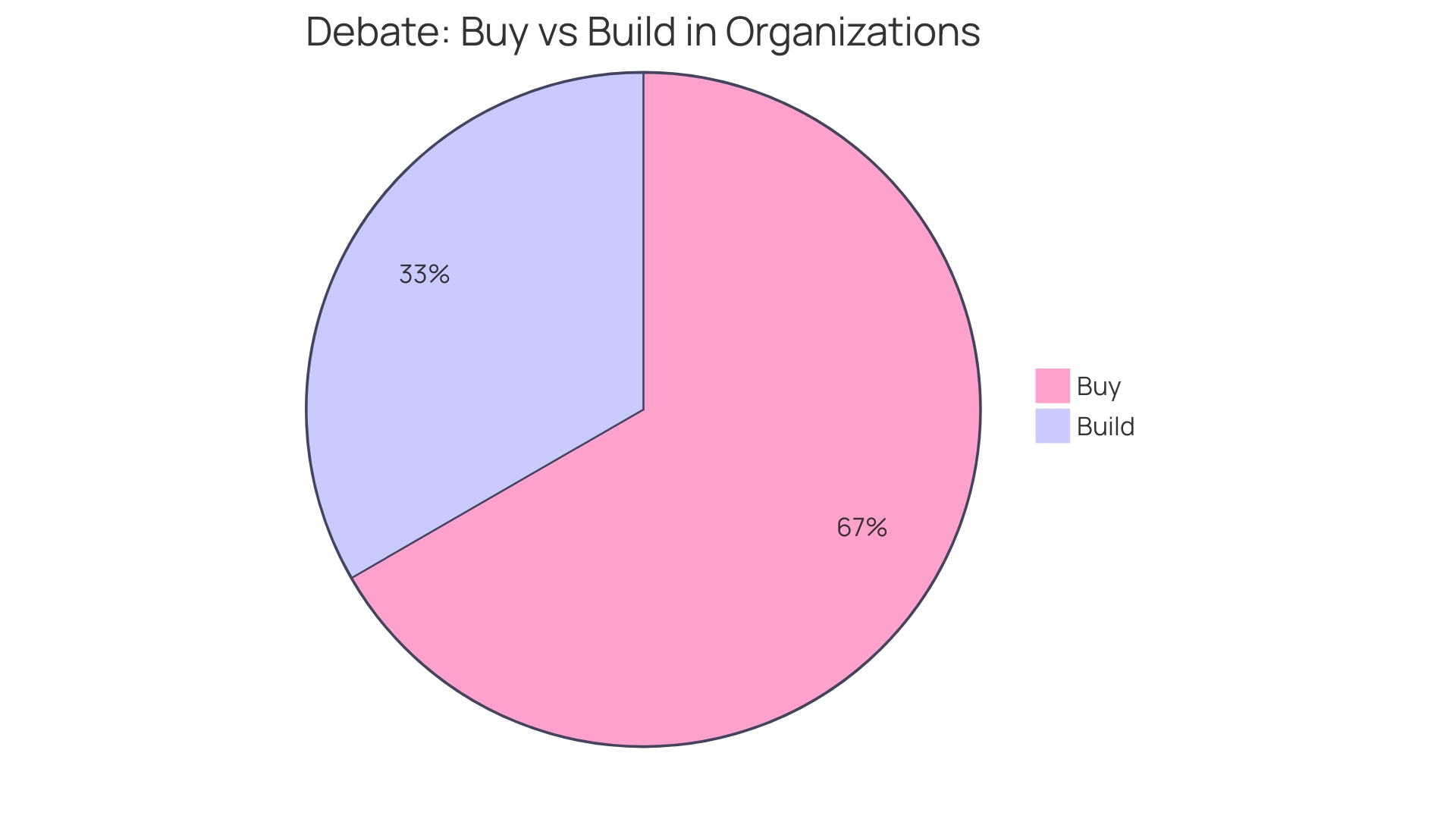
Hybrid Cloud Capabilities
Hybrid cloud solutions offer a strategic advantage to organizations by marrying the scalability and versatility of public clouds with the control and security of on-premises infrastructure. AWS and Azure, two prominent players in the cloud domain, have developed robust hybrid offerings designed to facilitate the seamless integration of cloud with local environments.
For instance, AWS has made significant strides in hybrid cloud storage, recently announcing Amazon S3 Express One Zone, which promises rapid access to frequently used data and supports an impressive volume of requests. Similarly, Azure's consistent emphasis on customer-centric approaches, as exemplified by partnerships like the one with Rackspace, provides tailored insights and plans for organizations like IFCO, seeking to optimize their cloud transition.
Organizations of all sizes, including influential bodies like the World Bank, are increasingly adopting hybrid models to centralize their IT operations. The World Bank's experience of moving away from disparate cloud services to a more unified system underscores the significance of a centralized hybrid approach.
The evolution of cloud computing has also seen a significant transformation in security practices. From basic firewalls to advanced, multi-layered defenses, cloud providers have relentlessly upgraded their security measures to combat the growing sophistication of cyber threats.
Statistics reflect the growing trend towards hybrid and multi-cloud strategies, with 78% of organizations favoring such models, of which 43% employ a hybrid setup. The economic benefits, as highlighted by reports on Infoblox solutions, show an impressive ROI and operational efficiencies for businesses that adopt advanced cloud management practices.
In the era of digital transformation, the hybrid cloud stands out as a transformative technology, reshaping how businesses operate and innovate. With the right strategy, organizations can leverage hybrid cloud to balance control, cost, and flexibility, while positioning themselves to adapt to future technological advancements. This approach not only preserves existing investments in on-premises processes but also encourages the exploration of new technological avenues, ensuring businesses remain agile and competitive in a dynamic market landscape.
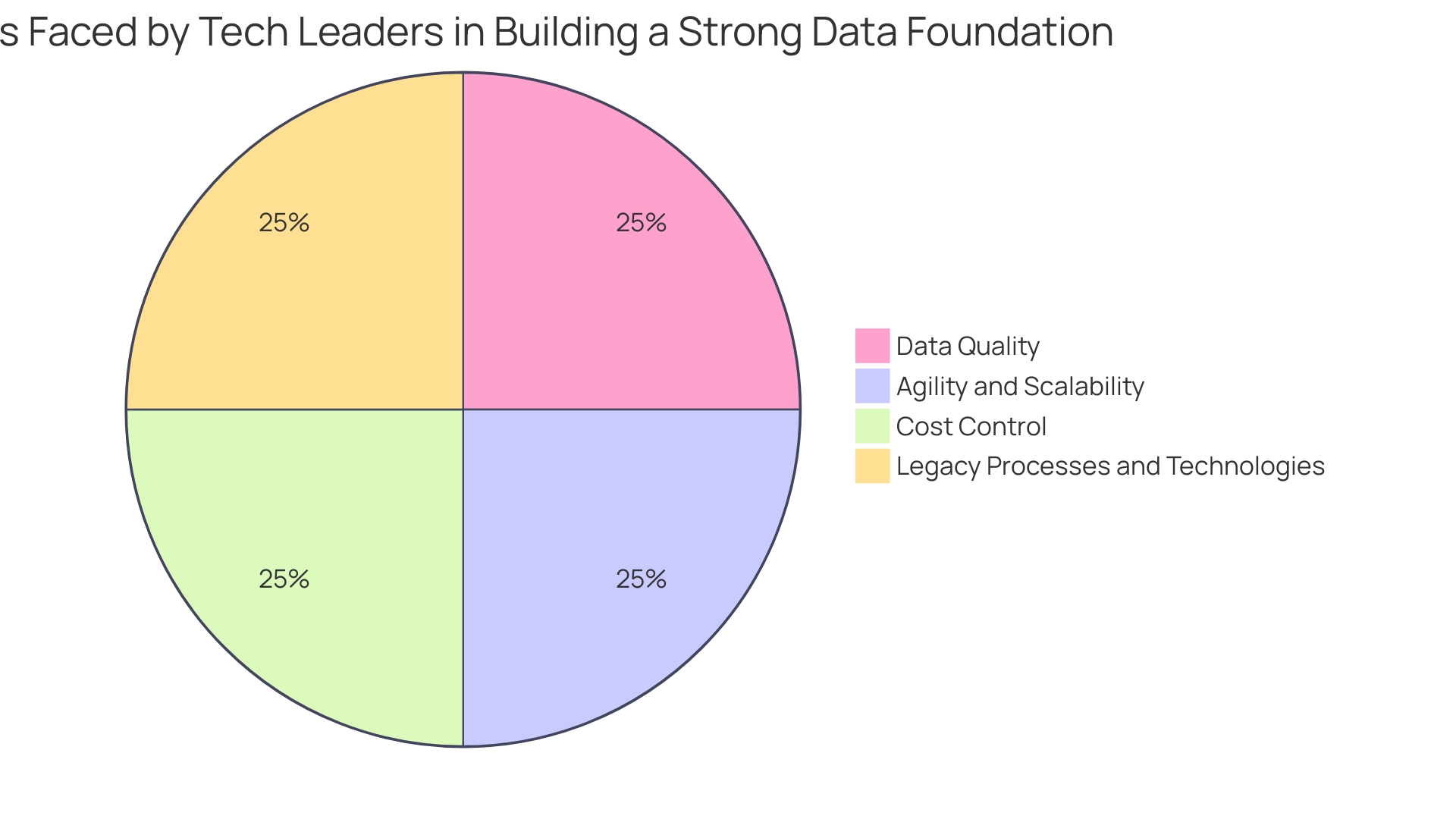
Market Share and User Base
The landscape of cloud computing is largely dominated by AWS and Azure, each commanding significant portions of the market. AWS, known for its vast array of services and deep infrastructure, leads the market. However, Azure is rapidly closing in, appealing to businesses with its seamless integration with other Microsoft services.
The increased reliance on cloud services is driven by the digital transformation initiatives across various industries, with the internet's proliferation and smart devices' ubiquity underpinning this surge. Supported by the growing use of big data and advancements in IoT, 5G, ML, and AI, organizations are rapidly adopting cloud architectures to enhance operational efficiency and quickly adapt to market changes. As reported by the World Economic Forum, the onset of the fourth industrial revolution has accelerated the adoption of cutting-edge technologies, further cementing the role of cloud computing in modern business practices.
Particularly noteworthy is the uptake of cloud services among SMEs, which are adopting SaaS, PaaS, and IaaS models to foster innovation and remain competitive in sectors such as retail, BFSI, consumer goods, and manufacturing. Governments around the world are supporting this technological shift through initiatives and programs designed to facilitate the transition to cloud-based solutions. This dynamic market growth is expected to continue as companies leverage cloud computing to deploy advanced technologies and reshape their business operations.
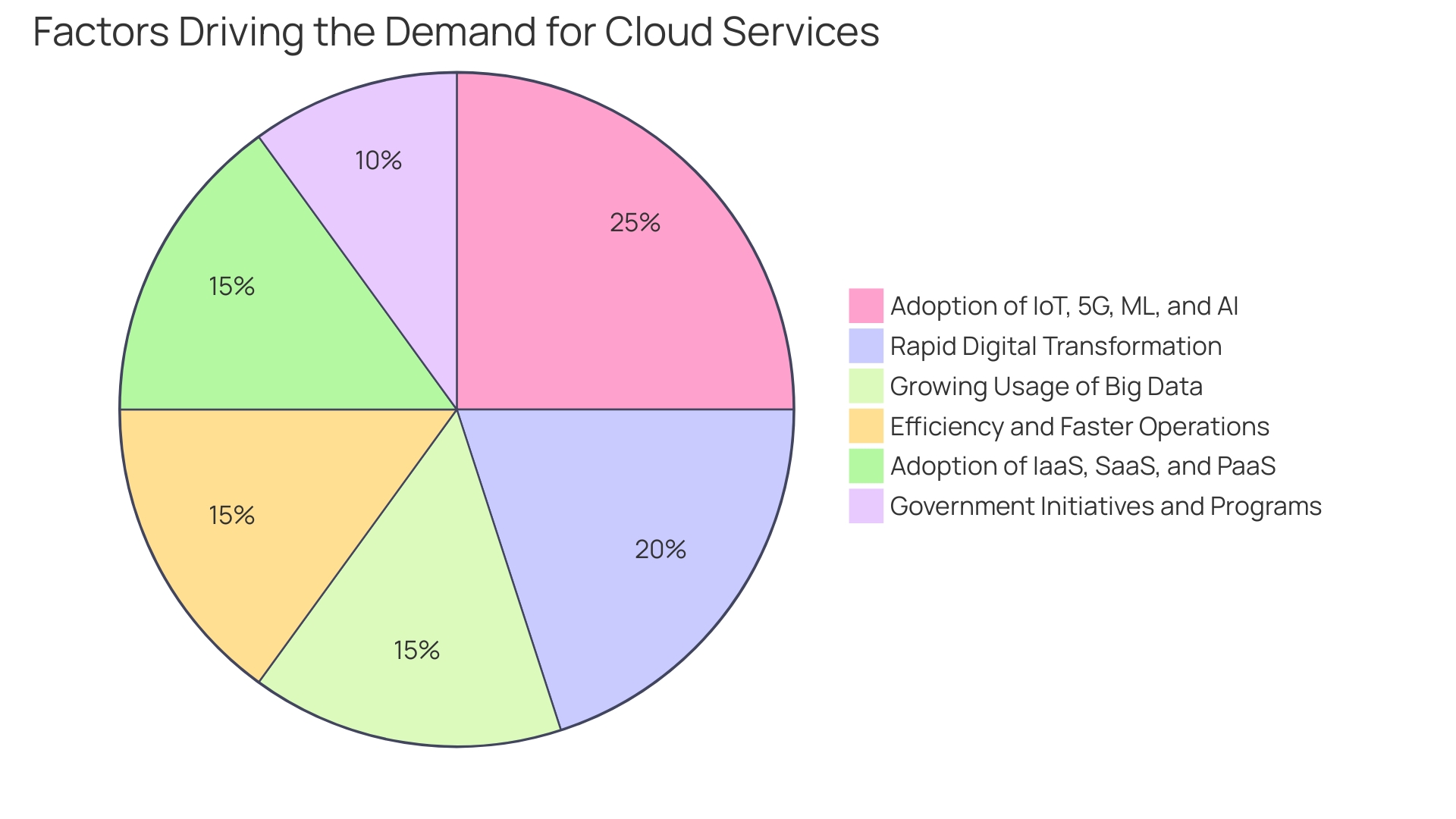
Career Opportunities and Certification
As the cloud computing industry matures, professionals with AWS and Azure certifications are finding themselves at the forefront of career opportunities. These certifications not only demonstrate a proficiency in the leading cloud platforms but also a dedication to staying current with the rapidly evolving technology landscape. For instance, Tyler Millis, a software developer and MIT graduate, earned a remarkable 47 technology certifications before even finishing high school, securing the Microsoft Office Specialist World Champion title.
His extensive certification knowledge set him apart from his MIT peers, highlighting the competitive edge that such credentials can provide.
Universities are increasingly incorporating certifications into their curricula, recognizing their tangible value in the real job market. With employers adopting a skills-first approach—evidenced by LinkedIn data suggesting that approximately 20% of U.S. jobs no longer require a four-year degree—certifications are becoming a critical differentiator for candidates. They offer a clear indication of a candidate's expertise and adaptability, qualities highly valued in the tech industry.
Cloud certifications are not merely academic achievements; they are recognized internationally, allowing certified individuals to compete globally. Students like Kayden Anderson from the Australian Catholic University have seen firsthand the advantages these certifications provide, with job offers contingent upon attaining specific certificates. Additionally, the cost of obtaining AWS certification varies, but the investment is justified by the potential career advancement and salary benefits.
The cloud sector is anticipated to generate $1.6 trillion by 2030, with a significant portion of revenue coming from industries such as banking, financial services, and retail. This underscores the necessity for specialized training and knowledge in cloud computing. The right certification can serve as a testament to your skills in this domain.
The preparation for these certifications is rigorous, yet the practical, problem-focused nature of the exams equips candidates with real-world skills.
To navigate the complexities of cloud technologies and contribute to this growing field, a solid foundation in programming languages is essential. Cloud certifications, therefore, are not just about validating existing knowledge—they're about empowering tech professionals to take an active role in shaping the future of the industry.
Choosing Between AWS and Azure: Key Considerations
When contemplating the choice between AWS and Azure, businesses must weigh a multitude of considerations. These range from the specific needs of the enterprise, the level of technical proficiency available, and the financial implications. AWS offers a robust, scalable platform favored by businesses for its capacity to grow at a flexible pace.
Azure, with a strong focus on hybrid cloud solutions, appeals to organizations with existing Microsoft infrastructure or those seeking extensive integration capabilities.
For instance, Dunelm Group plc experienced significant growth and needed to scale its digital platform efficiently. The transition to a distributed system, particularly for their revenue-generating frontend layer, was critical. This reflects a common scenario where businesses must decide whether to build in-house solutions with their development teams or leverage cloud services for better scalability and maintenance.
AWS and Azure offer modern, elastic workloads and a pay-as-you-go pricing model, which can be pivotal for companies like GoDaddy, where data-driven decision-making and batch processing optimization are paramount.
The current landscape requires a delicate balance between on-premise legacy systems and cloud solutions, especially when regulations or data residency considerations come into play. Cloud security's evolving history, from being an afterthought to a sophisticated, multi-layered strategy, cannot be ignored in this decision-making process.
Recent developments, such as AWS's commitment to establishing an independent European cloud, highlight the importance of digital sovereignty and the need for local computing power, particularly for the German 'Mittelstand' and other SMEs striving to remain competitive in a digitizing global market. As Canalys reports, the technology industry is continually evolving, making it crucial for businesses to stay informed and adapt to the changing landscape. Ultimately, the decision between AWS and Azure should align with an organization's strategic objectives, ensuring that the chosen platform supports and enhances their technological vision.
Conclusion
AWS and Azure are frontrunners in cloud computing, offering a wide range of services tailored for businesses of all sizes. They have revolutionized operations for companies like Axfood and Dunelm Group plc, ensuring reliability, scalability, and business continuity. The platforms' evolution in cloud security has solidified their position as trusted guardians of customer data.
With cost-effective pricing models and operational agility, AWS and Azure empower businesses to adapt swiftly to market shifts. Their compute and storage services cater to various application needs, while their database services enable the seamless functioning of business applications. Both platforms provide extensive suites of security features to protect against cyber threats.
Monitoring and DevOps services streamline processes, enhance collaboration, and integrate security measures from the outset. Understanding the pricing models and cost considerations of AWS and Azure is vital for optimizing cloud expenses. Hybrid cloud solutions offer a strategic advantage, combining public clouds with on-premises infrastructure.
AWS and Azure dominate the cloud computing market, catering to the growing demand driven by digital transformation initiatives. Cloud certifications, such as those offered by AWS and Azure, are valuable assets for professionals looking to advance their careers. When choosing between AWS and Azure, businesses must consider their specific needs, technical proficiency, and financial implications.
In conclusion, AWS and Azure provide a foundation for innovation, efficiency, and security in cloud computing. Their impact is evident in the success stories of diverse companies, highlighting the indispensable role of cloud computing in today's business ecosystem. Businesses must carefully consider their needs and goals when choosing between these platforms to leverage the transformative potential of cloud computing.
Take your career to new heights with AWS and Azure cloud certifications!




